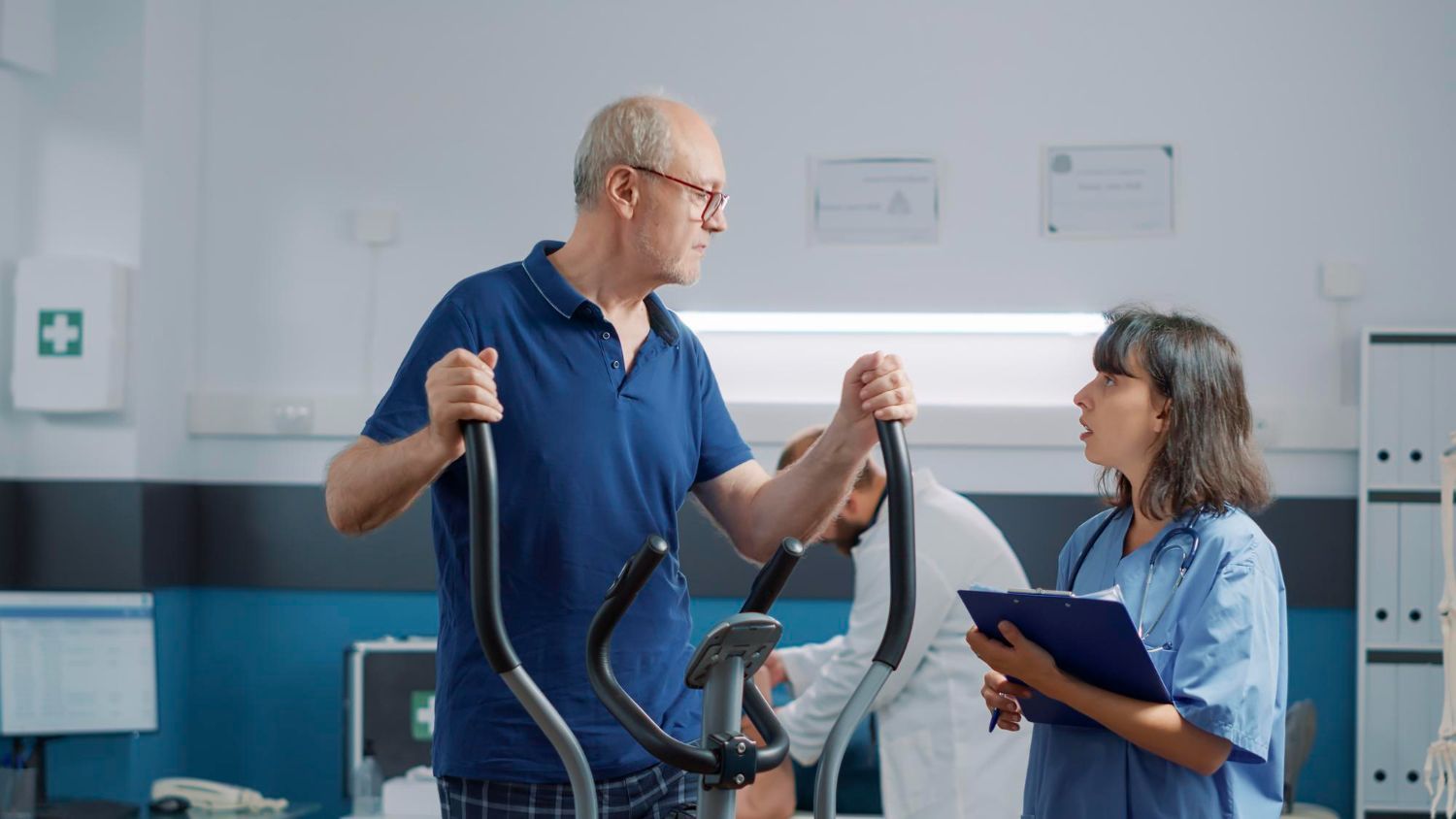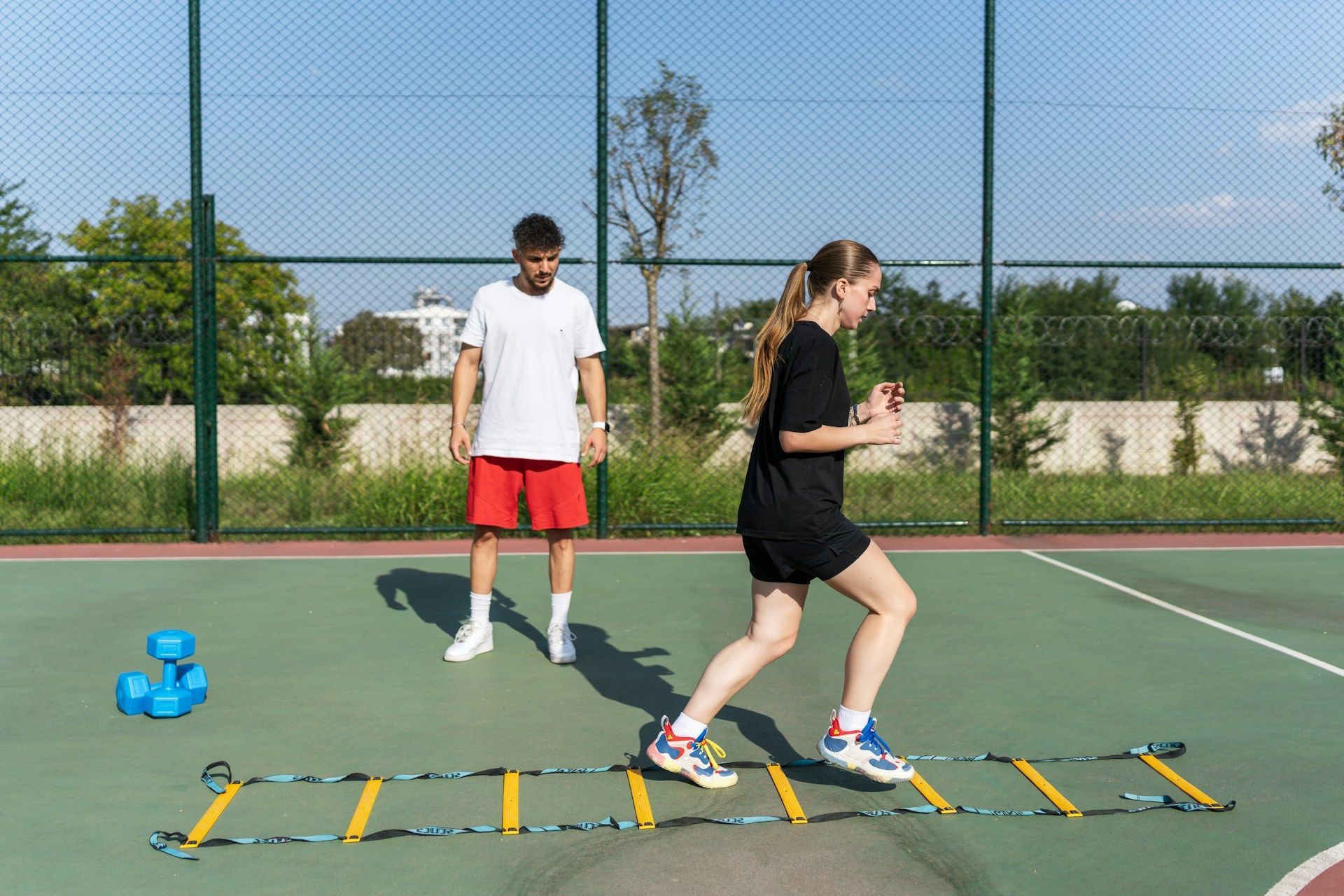Boost Brain Health With Strength Training
Strength training is renowned for its physical benefits, such as increased muscle mass, improved endurance, and greater overall strength. However, its positive effects extend far beyond the physical realm. Recent studies highlight the significant impact of weightlifting on brain health, revealing it as more than just a means to a stronger body.
Engaging in strength training with one of the personal trainers from Live Oak Fitness can lead to notable cognitive benefits. Enhanced memory, sharper focus, and better mood regulation are just a few advantages that can arise from incorporating resistance exercises into your routine. The connection between physical activity and mental well-being is particularly relevant to maintain both physical and mental health.
Exploring how strength training assists in brain health can help us make more informed choices about our fitness routines. Through understanding this connection, we can aim to not only strengthen our bodies but also enhance our cognitive functions, making everyday life more enjoyable and productive.
Understanding the Connection Between Strength Training and Brain Health
Strength training has long been celebrated for its ability to enhance physical health, but its benefits extend to brain health as well. Lifting weights can lead to positive changes in our brains, supporting cognitive functions such as memory, focus, and emotional regulation. The underlying mechanisms involve complex interactions between physical exercise and brain physiology.
When we engage in strength training, our bodies release various neurochemicals and growth factors. These substances, like brain-derived neurotrophic factor (BDNF), play a pivotal role in promoting the growth and survival of neurons, the cells that make up our brain. Regular resistance training increases the levels of these neurochemicals, enhancing neural connections and improving cognitive functions.
Moreover, strength training boosts blood flow to the brain, delivering essential oxygen and nutrients. This increased circulation helps to repair and protect brain cells, which is crucial for maintaining brain health as we age. The combination of these factors underscores the strong relationship between physical exercise and mental well-being, making strength training a valuable component of a holistic health regimen.
Key Cognitive Benefits of Strength Training
Improved Memory
Strength training can significantly boost memory. Exercises that challenge the muscles increase the production of hormones that support brain cell growth. Participants who regularly engage in resistance training often exhibit better memory retention and recall abilities. This is particularly beneficial for older adults looking to preserve cognitive functions as they age.
Enhanced Focus and Concentration
Lifting weights requires precise movements and concentration, which can translate into improved focus in other areas of life. The mental discipline developed through strength training helps sharpen attention and enhances the ability to concentrate on tasks for longer periods. This improved focus is beneficial for academic and professional performance.
Better Mood Regulation
Strength training has a positive impact on mood by reducing levels of stress and anxiety. Physical exertion stimulates the release of endorphins, the body's natural mood elevators. Regular strength training sessions can help combat symptoms of depression and anxiety, leading to a more balanced emotional state. This connection between physical activity and emotional well-being highlights the holistic benefits of exercise.
Reduced Risk of Cognitive Decline
Engaging in regular resistance training can help protect against age-related cognitive decline. Studies have shown that individuals who lift weights are less likely to experience deterioration in cognitive functions like decision-making, problem-solving, and information processing. The neuroprotective effects of strength training make it a powerful tool for maintaining cognitive health well into older age.
Understanding these cognitive benefits reinforces the importance of incorporating strength training into our daily routines. Regularly engaging in these exercises can provide a robust boost to both our physical and mental health, making them an essential component of a well-rounded fitness plan.
Effective Strength Training Exercises for Brain Health
1. Squats
Squats stand as a fundamental exercise in strength training. They target the lower body, including the quadriceps, hamstrings, and glutes. Performing squats helps improve leg strength and balance. Additionally, squats increase blood flow and oxygen to the brain due to the heavy involvement of large muscle groups. This boost in circulation supports cognitive functions by ensuring the brain receives the nutrients it needs to function optimally.
2. Deadlifts
Deadlifts are another powerful exercise that engages multiple muscle groups, including the back, glutes, and hamstrings. The movement requires significant concentration and proper form, enhancing focus and mental discipline. Deadlifting can help develop better posture and core stability, which supports overall brain health by promoting efficient blood flow and reducing stress on the body.
3. Bench Press
The bench press targets the chest, shoulders, and triceps. This exercise is excellent for building upper body strength. The act of pressing weights above the body improves muscle coordination and stabilizes muscles. Practicing the bench press can enhance neural pathways associated with strength and coordination, benefiting both physical and cognitive health.
4. Rows
Rows primarily work the back and biceps, and they help improve posture and spinal alignment. Performing rowing exercises strengthens the upper body and enhances the mind-muscle connection. This mental engagement stimulates brain activity, reinforcing the cognitive benefits of strength training.
5. Kettlebell Swings
Kettlebell swings are dynamic exercises that work the entire body, focusing on the core, hips, and legs. The explosive nature of the swing movements aids in developing power and endurance. Kettlebell swings also require precise timing and coordination, which engage and train the brain’s focus and concentration skills.
It is important for your health and safety to always check with your doctor or one of the personal trainers at Live Oak Fitness before beginning any workout program.
Tips for Getting Started With Strength Training on St. Simons Island
1. Setting Realistic Goals
Begin your strength training journey by setting realistic and attainable goals. Start with small milestones that are achievable within a short period. These can include increasing the weight you lift gradually or extending your workout duration. Setting clear, attainable goals keeps you motivated and ensures steady progress.
2. Finding the Right Trainer
Having an experienced personal trainer can make a big difference in your fitness journey. A good trainer provides guidance on proper form and technique, ensuring you perform exercises safely and effectively. At Live Oak Fitness on St. Simons Island, there are several qualified trainers who can tailor a program specific to your needs and goals.
3. Safe and Gradual Progression
It’s essential to progress gradually in strength training to avoid injury and overtraining. Start with lighter weights and focus on mastering the form of each exercise. Increasing the resistance or weight slowly allows your muscles and joints to adjust, reducing the risk of strains and sprains. Listen to your body and take rest days to recover.
4. Tracking Your Progress
Keep a log of your workouts, noting the exercises performed, weights used, and the number of sets and reps completed. Tracking your progress helps identify what is working and where improvements can be made. It also provides motivation as you see tangible evidence of your strength gains and overall progress.
Conclusion
Strength training significantly impacts both our physical and brain health. By incorporating exercises such as squats, deadlifts, bench presses, rows, and kettlebell swings, we can enhance cognitive functions, improve memory and focus, and regulate mood. These benefits underscore why strength training should be a key component of any fitness routine.
If you're ready to boost your brain health and physical strength, reach out to Live Oak Fitness on St. Simons Island. Our
private personal trainers can help you develop a safe and effective strength training program tailored to your needs. Start your journey towards a healthier brain and body with Live Oak Fitness today!
St. Simons
Decatur
E : liveoakfitness@gmail.com
Site Map
Service Areas











